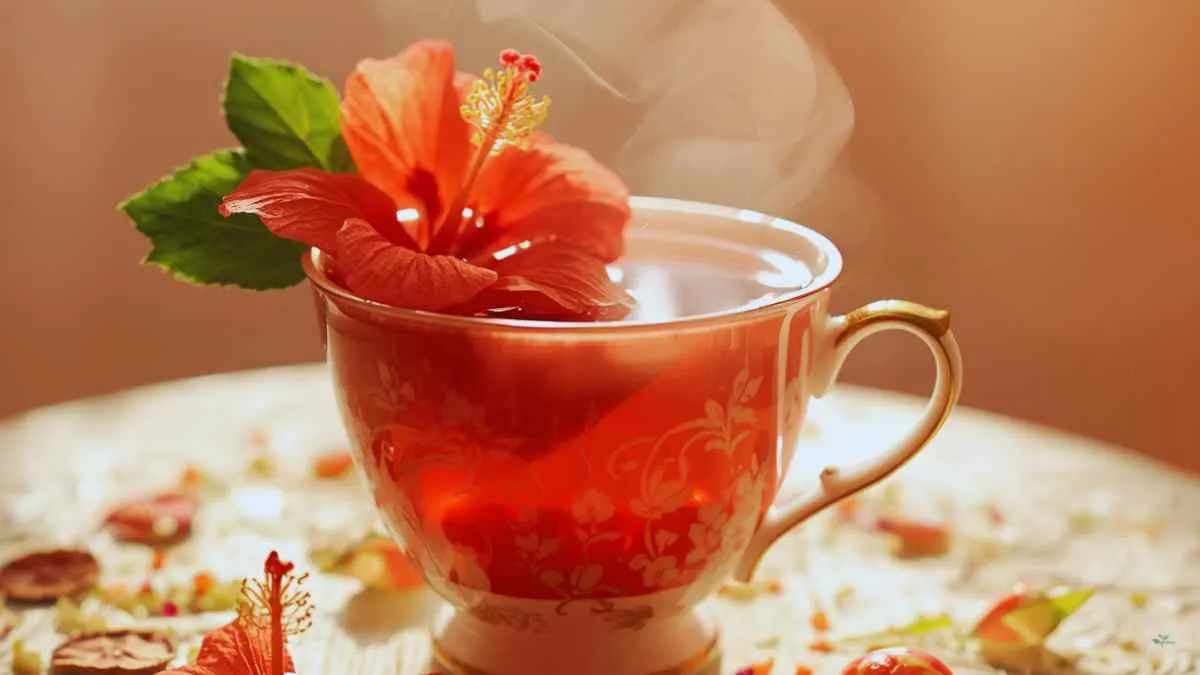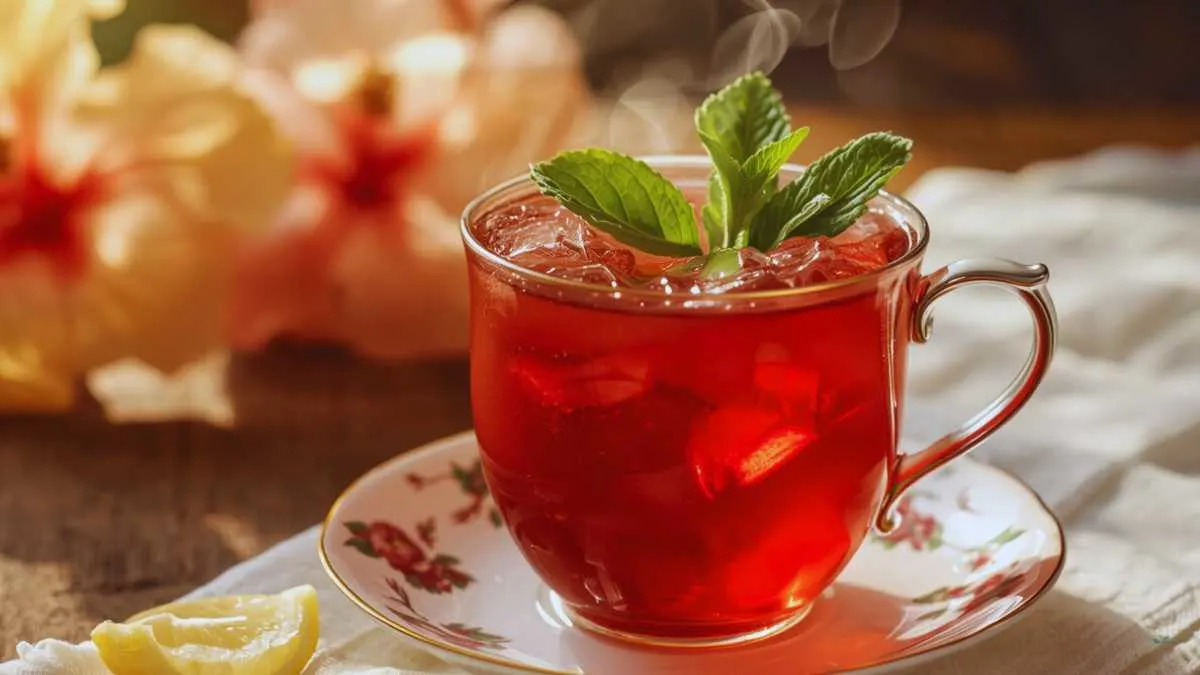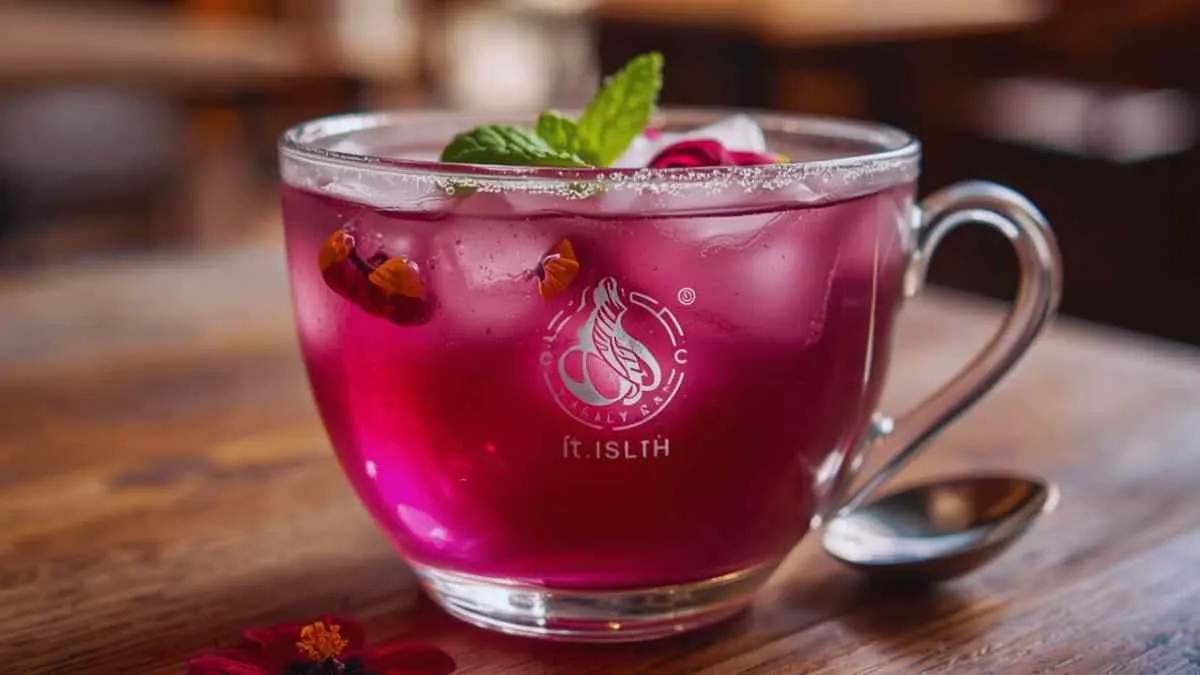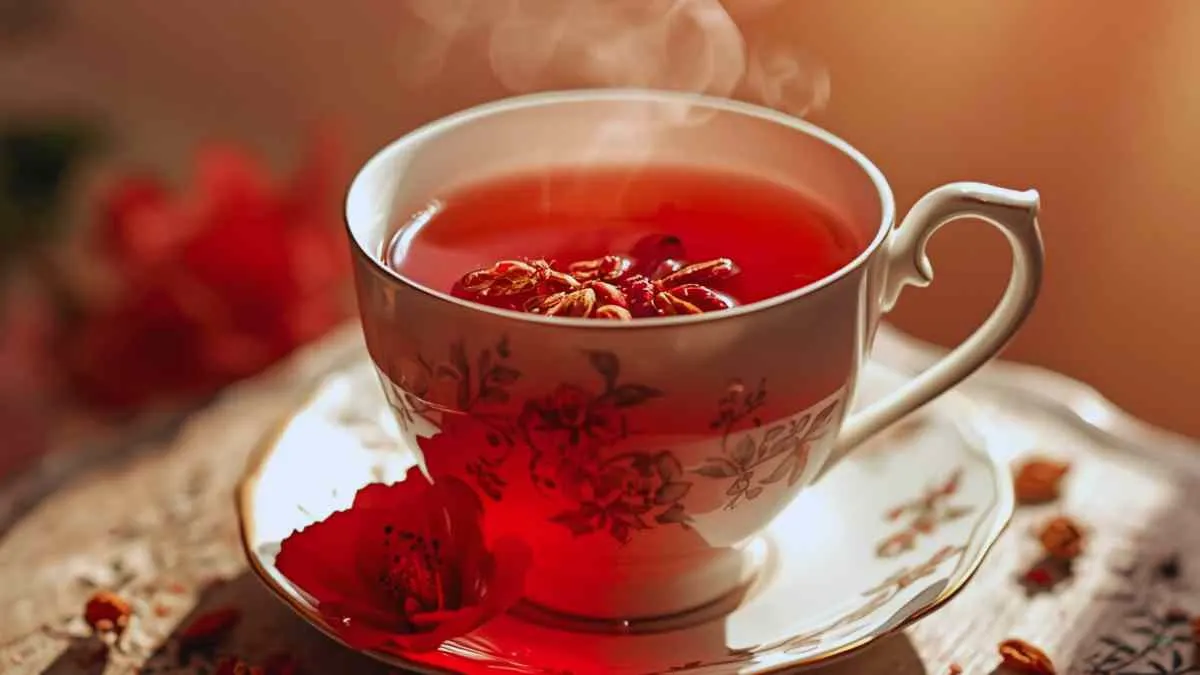Hibiscus tea, derived from the vibrant red calyces of the Hibiscus sabdariffa plant, is celebrated for its tart flavor and numerous health benefits.
This comprehensive guide delves into the preparation of hibiscus tea, its health advantages, and answers to common questions.
What Is Hibiscus Tea?
Hibiscus tea is an herbal infusion made by steeping dried hibiscus petals in hot or cold water. Known for its deep red color and tangy taste, it is consumed worldwide in various forms, including hot, iced, and blended with other herbs.
The tea is rich in antioxidants like anthocyanins, which contribute to its health-promoting properties.
How to Make Hibiscus Tea: Step-by-Step:
1. Traditional Hot Hibiscus Tea

Ingredients:
-
1 tablespoon dried hibiscus petals
-
1 cup boiling water
-
Sweetener to taste (honey, sugar, or stevia)
-
Optional: lemon slice or cinnamon stick
Instructions:
-
Place the dried hibiscus petals in a teapot or heatproof container.
-
Pour the boiling water over the petals.
-
Cover and steep for 5–10 minutes, depending on desired strength.
-
Strain the tea to remove the petals.
-
Add sweetener and optional lemon slice or cinnamon stick.
-
Serve hot and enjoy.
2. Iced Hibiscus Tea

Ingredients:
-
1 tablespoon dried hibiscus petals
-
1 cup boiling water
-
3 cups cold water
-
Sweetener to taste
-
Ice cubes
-
Optional: lime wedges or mint leaves
Instructions:
-
Steep the hibiscus petals in boiling water as described above.
-
Allow the tea to cool to room temperature.
-
Combine the cooled tea with cold water in a pitcher.
-
Add sweetener to taste and stir well.
-
Refrigerate until chilled.
-
Serve over ice with optional lime wedges or mint leaves.
Recommended: Chamomile Tea | Benefits, Uses, and How to
3. Cold Brew Hibiscus Tea

Ingredients:
-
1 tablespoon dried hibiscus petals
-
4 cups cold water
-
Sweetener to taste
-
Optional: lemon slices or ginger slices & mint
Instructions:
-
Combine the hibiscus petals and cold water in a pitcher.
-
Cover and refrigerate overnight (8–12 hours).
-
Strain the tea to remove the petals.
-
Add sweetener and optional lemon or ginger slices and mint in toppings
-
Serve chilled over ice.
Health Benefits of Hibiscus Tea:
1. Supports Heart Health
Regular consumption of hibiscus tea has been associated with reduced blood pressure levels. A systematic review and meta-analysis indicated that hibiscus could confer reduced cardiovascular disease risk PMC.
2. Rich in Antioxidants
Hibiscus tea is packed with antioxidants such as beta-carotene, vitamin C, and anthocyanins. These compounds help protect cells from oxidative stress and may reduce the risk of chronic diseases Cleveland Clinic.
3. Aids in Weight Management
Some studies suggest that hibiscus tea may assist in weight management by inhibiting the production of amylase, an enzyme that breaks down carbohydrates. This may reduce the absorption of starch and sugar Healthline.
4. Supports Liver Health
Hibiscus tea contains compounds that may help protect the liver from damage and support its detoxification processes The Times of India.
5. Promotes Digestive Health
The diuretic properties of hibiscus tea can help promote healthy kidney function and reduce bloating. Additionally, it may support a balanced gut microbiome Verywell Health.
Important Considerations:
-
Blood Pressure Medications: Hibiscus tea may interact with medications used to treat high blood pressure. Consult a healthcare provider before consuming hibiscus tea if you are on such medications Healthline.
-
Pregnancy and Breastfeeding: Pregnant or breastfeeding women should avoid hibiscus tea due to potential hormonal effects.
-
Allergies: Individuals allergic to hibiscus or related plants should refrain from consuming hibiscus tea.
Scientific Insights:
Research has shown that hibiscus tea contains anthocyanins, compounds responsible for its red color, which possess antioxidant and anti-inflammatory properties.
These compounds may contribute to the tea’s potential health benefits, including supporting heart and digestive health Cleveland Clinic.
Frequently Asked Questions:
Q1: Can I drink hibiscus tea daily?
Yes, moderate consumption of hibiscus tea is generally safe for most individuals. However, it’s essential to consult a healthcare provider if you have underlying health conditions or are on medication.
Q2: How does hibiscus tea taste?
Hibiscus tea has a tart, cranberry-like flavor. Sweeteners like honey or sugar can be added to balance the taste.
Q3: Can I use fresh hibiscus flowers to make tea?
Yes, fresh hibiscus flowers can be used to make tea. Ensure they are free from pesticides and chemicals before use.
Q4: Is hibiscus tea caffeine-free?
Yes, hibiscus tea is naturally caffeine-free, making it suitable for consumption at any time of the day.
Note: Hibiscus tea is a flavorful and healthful beverage that can be enjoyed in various forms.
If consumed hot to warm you up or cold to refresh you, its potential health benefits make it a worthwhile addition to your diet.
Always consider personal health conditions and consult with a healthcare provider if necessary before incorporating new herbal teas into your routine.

